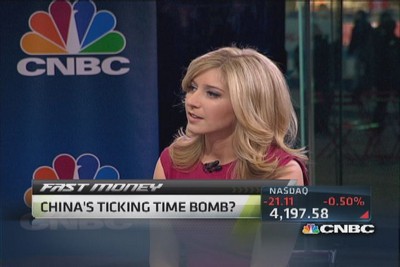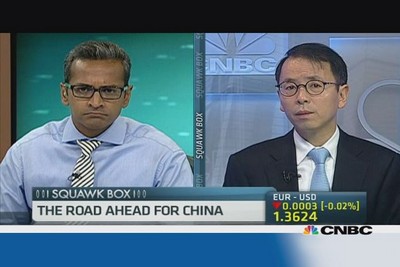Jakarta - Composite Index ( JCI ) rose 10 points, driven by the strengthening of exchanges in Asia . Selective buying began to appear in the stocks that are already subject to correction yesterday .
While the rupiah against the U.S. dollar ( U.S. ) opened remained at Rp 12,115 per U.S. dollar, the same as the position at the close of trading yesterday .
In preopening trading , stock index rose 10.77 points ( 0.24 %) to 4442.35 . While the LQ45 Index increased 3.15 points to 751.51 .
He began trading on Tuesday ( 21/01/2014 ) , JCI opened up 16.53 points ( 0.37 %) to 4447.12 . LQ45 index opened up 3.21 points at 751.63 .
Bank shares are still subject to correction due to profit taking . But the correction is not too deep so as not to drag JCI into the red zone .
Up at 9:05 Jats time , drove JCI 19.23 points ( 0.44 %) to 4450.89 . While LQ45 Index rose 3.82 points to 752.29 .
Yesterday JCI maintain upward momentum since the morning and managed to get 19 points . Negative sentiment slowing Chinese economy could be pushed well by market participants.
Wall Street stock market in the U.S. closed on Monday to commemorate Martin Luther King Jr. Day. Investors will likely watch on developments in China after the PBOC yesterday poured liquidity facilities to slow rising interest rates.
Asian exchange compact rose this morning, led by the Japanese market. This positive sentiment rose successfully pushed IDX.
Here's the situation in the Asian bourses this morning:
Shanghai Composite Index rose 5.95 points (0.30%) to 1997.20.
The Hang Seng Index rose 150.96 points (0.66%) to 23079.91.
The Nikkei 225 index jumped 188.69 points (1.21%) to 15830.37.
Straits Times Index added 5.52 points (0.18%) to 3134.31.
ANM World Wide

Earth
Selasa, 21 Januari 2014
China’s shadow banking reform faces its first test
China's push to
reform its shadow banking sector is about to get its first big test as
one of the country's high-yield trust investment products appears set to
default for the first time.
Investors in the trust, which has the unwieldy moniker "2010 China Credit / Credit Equals Gold #1 Collective Trust Product," likely won't be paid back at the end of the month after Industrial and Commercial Bank of China said it won't bail out the product it helped to market.
(Read more: Here's how bad China's bad loan problem could get)
Investors in the trust, which has the unwieldy moniker "2010 China Credit / Credit Equals Gold #1 Collective Trust Product," likely won't be paid back at the end of the month after Industrial and Commercial Bank of China said it won't bail out the product it helped to market.
(Read more: Here's how bad China's bad loan problem could get)
China's banking ticking time bomb?
CNBC's Sara Eisen reports on new concerns shadowing China's banking system.
The 3 billion yuan, or around $496
million, trust used its funds to make a loan to unlisted coal company
Shanxi Zhenfu Energy Group Ltd., which has since collapsed.
While this isn't the first time a trust product has found itself with pockets to let, it could become the first to pass on the pain to investors, who widely perceive these products as having a guarantee from state-owned banks.
"They're treading a fine line," said Richard Jerram, chief economist at the Bank of Singapore.
(Read more: China's debt sentence, the biggest 'known, unknown' in 2014?)
"There's a willingness to educate investors that this is not a risk-free product. It can't be a risk-free product if it's offering premium interest rates," Jerram said. The trust offered a yield of around 10 percent a year, compared with benchmark bank rates of around 3 percent.
"It would be useful if investors sustained some of the losses," he said. But at the same time, "they don't want to frighten people away from these products entirely, or create a run, or make it impossible to sell any future products," he added.
(Read more: China's toxic debt doctors prepare for surgery)
"It's a small number in terms of value," he noted. "In terms of the message, it's a very dangerous game."
The amounts involved with this trust are relatively small. Trusts had around 10.1 trillion yuan under management at the end of the third quarter, according to the China Trustee Association
China's state auditor said in a report last month that local governments owe almost $3 trillion in outstanding debt, much of it raised via trusts. The debt pile is viewed as one of the biggest threats facing the country's economy, with concerns that much of it cannot be repaid as it was used to fund non-profitable projects. The prospect of defaults is stoking concerns over the stability of the financial system.
While this isn't the first time a trust product has found itself with pockets to let, it could become the first to pass on the pain to investors, who widely perceive these products as having a guarantee from state-owned banks.
"They're treading a fine line," said Richard Jerram, chief economist at the Bank of Singapore.
(Read more: China's debt sentence, the biggest 'known, unknown' in 2014?)
"There's a willingness to educate investors that this is not a risk-free product. It can't be a risk-free product if it's offering premium interest rates," Jerram said. The trust offered a yield of around 10 percent a year, compared with benchmark bank rates of around 3 percent.
"It would be useful if investors sustained some of the losses," he said. But at the same time, "they don't want to frighten people away from these products entirely, or create a run, or make it impossible to sell any future products," he added.
(Read more: China's toxic debt doctors prepare for surgery)
"It's a small number in terms of value," he noted. "In terms of the message, it's a very dangerous game."
The amounts involved with this trust are relatively small. Trusts had around 10.1 trillion yuan under management at the end of the third quarter, according to the China Trustee Association
China's state auditor said in a report last month that local governments owe almost $3 trillion in outstanding debt, much of it raised via trusts. The debt pile is viewed as one of the biggest threats facing the country's economy, with concerns that much of it cannot be repaid as it was used to fund non-profitable projects. The prospect of defaults is stoking concerns over the stability of the financial system.
Expect China bad loans to rise in 2014: Andy Xie
Andy Xie, Independent
Economist, states that non-performing loans could see double-digit
growth this year, with the majority originating in the trust industry.
These high risk wealth-management products, or WMPs, which offer yields of more than 8 percent are only around 0.4 percent of the total number of bank WMPs issued between 2009 and 2013 and mining-related ones represent only around 1.8 percent of the total, Daiwa said in a note.
(Read more: China's bad-loan skeletons to haunt markets)
The bank also believes risks from WMPs' outstanding balances may not be as high as the amount of new issuance during 2013 would suggest, noting they generally have durations of less than six months, with the balance then rolled over.
Daiwa doesn't see the amounts involved as the true risk. "We believe a downside risk to the banking sector is whether a default in WMPs will trigger wide-spread panic among investors to withdraw their money from WMPs, thus shattering the confidence in trust and other nonbank financing channels," it said.
—By CNBC.Com
Langganan:
Postingan (Atom)






